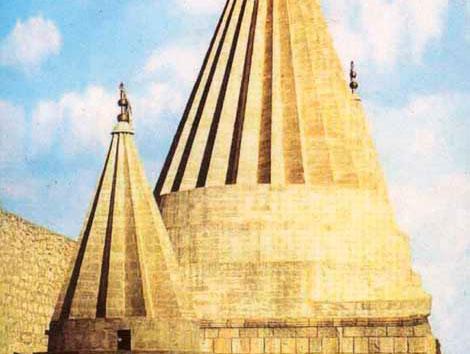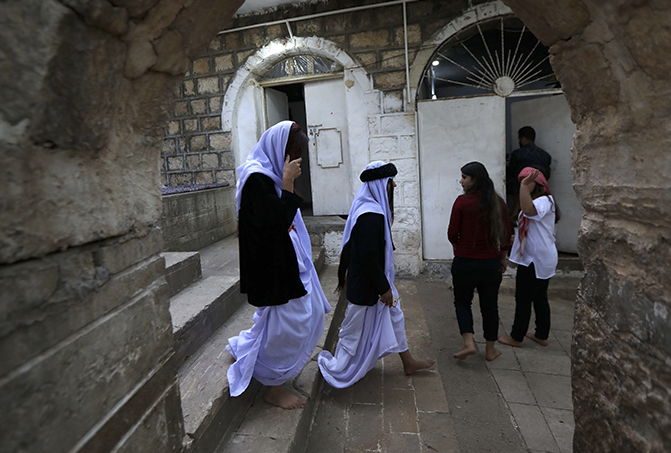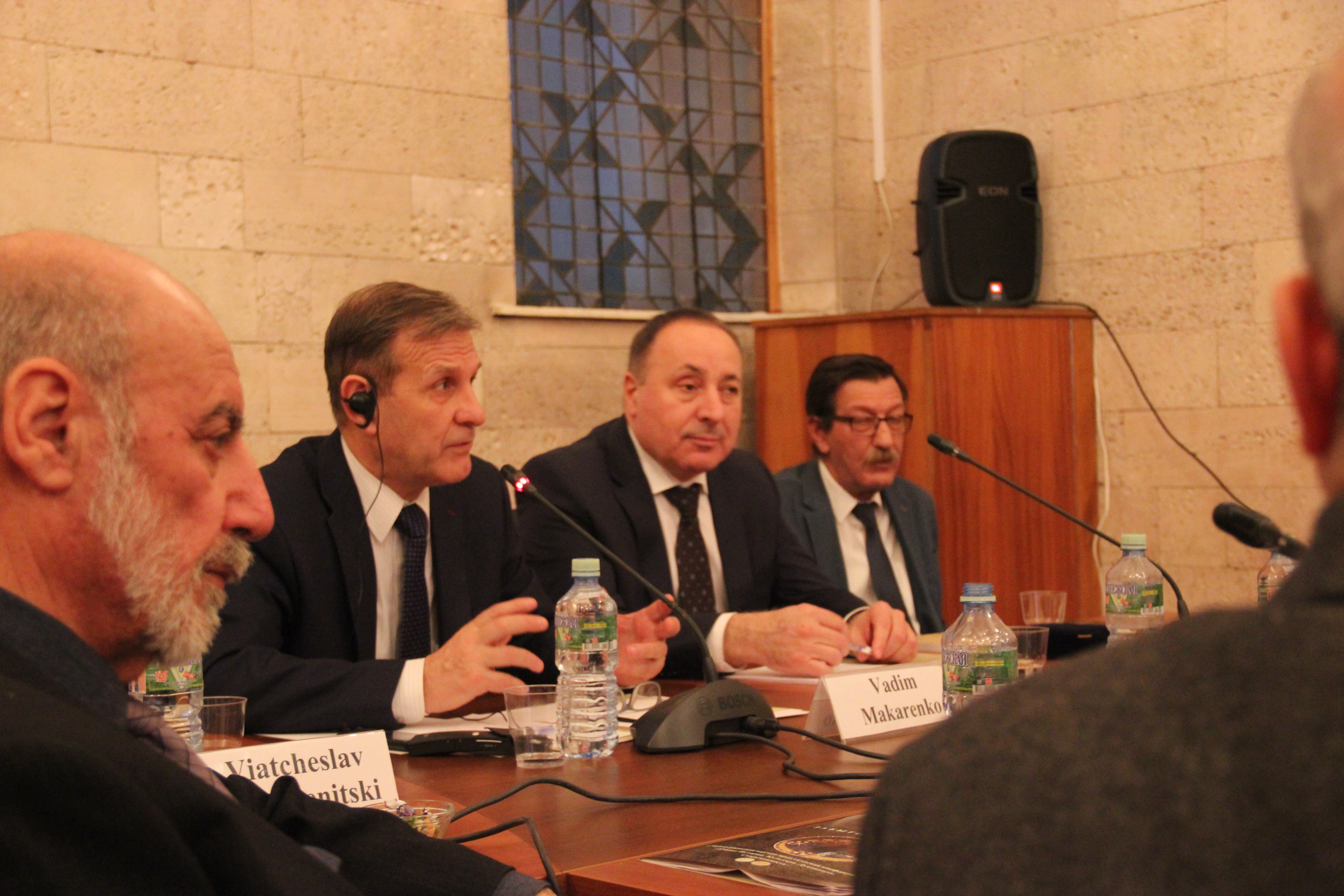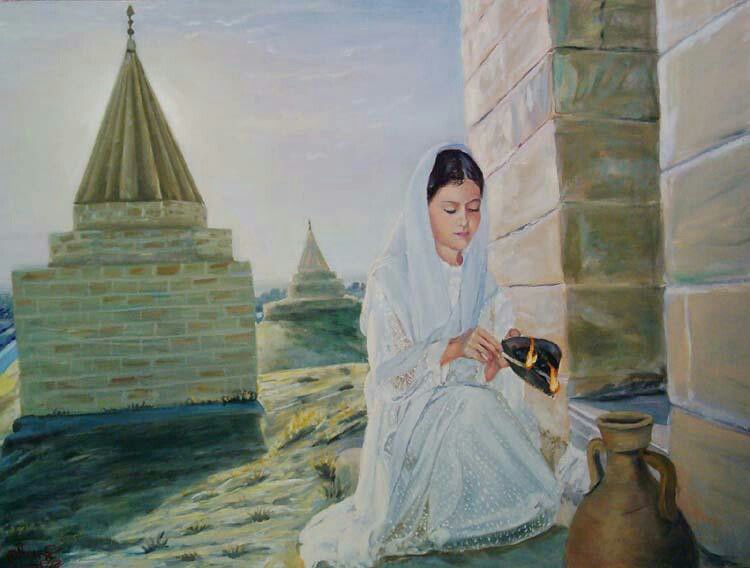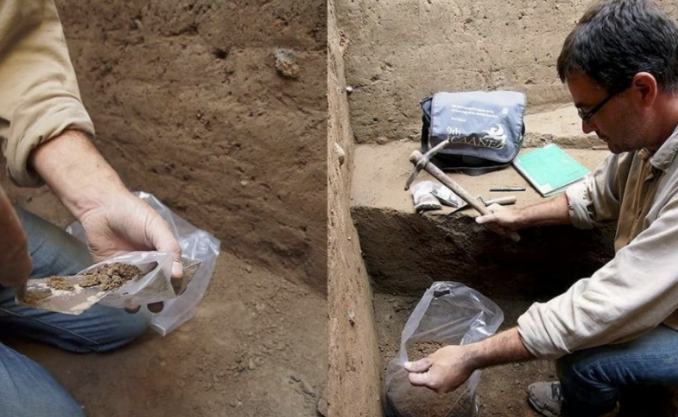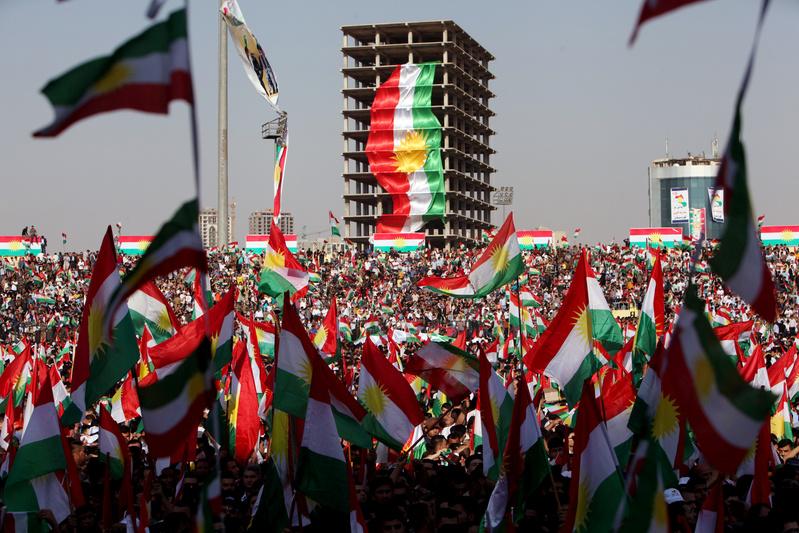Articles
Future of Kurdish Education Hangs in Uncertainty
Abdurrahman Wahab & Aras Ahmed Mhamad / 16 августа 2017 года
The social, political and economic turmoil in the Kurdistan region reflects the crises in its educational system.
On July 2, at a school in Iraqi Kurdistan, a 12th grade student, unable to hold it any longer, urinated himself during a baccalaureate exam. “I asked the invigilators and the teachers several times to allow me to go to the lavatory, but they refused,” the high school senior said.
Months earlier, a first grade student was beaten harshly by his teacher. As a result, both his ears were severely damaged and his face distorted. “My teacher told me if I tell anyone he would … fail me and won’t allow me to come to school anymore. He pulled my ears and put me down twice,” the child told Rudaw, a Kurdish media network.
EDUCATION IN KURDISTAN
These instances of corporal punishment are not uncommon in Iraqi Kurdistan. In fact, physical and verbal abuse, public humiliation, harassment and mistreatment of teachers and students — sometimes for not doing class assignments or not following strict school regulations — are widely practiced in Kurdish schools. Teaching heavily relies on the implementation of institutional mandates, centralized curricula and imposition of modern techniques of indoctrination. Teachers do not have much say in how the teaching process takes place and only repeat what is set in the curriculum.
Universities enroll students based on a centralized system of admission that solely depends on candidates’ final grades in the baccalaureate exam. The schooling system does not leave much room for any artistic innovation and scientific ambitions that youth of the Kurdish region might wish to explore and develop. Children are taught from an early age to take for granted any social and intellectual merits and artistic inclinations that would not lead to extra grades in the final standardized examinations.
The main concern of Kurdish educational institutions is to preserve and extend the multilayered bureaucracies that are developed through the modernization processes of the Iraqi state. Historically, the Kurdish educational system has also been concerned with managing the growing population of youth in the region and absorbing the pressures for social and political reform, and for securing jobs in the bloated public sector.
Institutional rigidity, bureaucratization, malpractice in teaching and administration, deficit thinking in policymaking, and the prominence of political meddling in academic decision-making have become characteristics of the schooling culture. Rote memorization and indoctrination of curriculum content have replaced critical discussions and freedom of thought. Such practices that miseducate children and the youth have added to the systemic corruption and violence in society.
Eventually, the educational system in Iraqi Kurdistan has become a medium for graduating an increasing number of youth with diplomas that have little value beyond the region’s problematic system of public employment, which does not require clear standards of academic value, merit or skills.
WIDER ISSUES AT PLAY
Since the plummeting price of oil — the main source of public revenue — has added to the dire economic condition in Kurdistan region, the educational system has ever more fallen into the confusion of what its purpose can be in shaping the social, political and economic integrity of a prospective Kurdish state in northern Iraq. The political division among the parties and the influences it has had over the social fabric has showed the futile effects of the current educational system in cultivating the democratic spirit and developing a culture of civility and critical responsibility. Schools are not giving students commonsensical reasons to pursue a clear future, as unemployment and youth migration are on the rise.
Formal education in Kurdistan seems to have lost its position as a catalyst to mobilize the population around democratic or nationalistic forces. However, it has presented itself to the political elite as very costly with little political and economic return.
The political and state elites have started to gradually rely on privatization of education, the media and other ideological apparatuses that have allowed them more direct intervention in the social, economic and political life in the region. Neoliberal voices of valuing education in relation to its market value are becoming pervasive, particularly since the region’s economy has been on the brink of collapse for the past few years. On the other hand, the infringement of freedoms is continuously on the rise in Iraqi Kurdistan and the proliferation of subservient media has drastically mounted.
Even though there are at least 100 local TV outlets and a score of partisan satellite channels for a population of about 5 million, the Kurdistan Journalists Syndicate has issued a statement indicating the rise of violence against journalists. The prominence of a popular, ideology-driven media culture at the expense of a democratic culture in education has led to a social and political atmosphere in Iraqi Kurdistan where political party ideology threatens the historical peaceful coexistence and social and cultural pluralism of Kurdish society. Academic establishments in the region have not been able to influence authorities or direct them to provide social and economic services and raise the living standards for all citizens regardless of their political affiliations. On the contrary, the political culture of Kurdish partisanship, rivalry for influence and expansion of patronage networks has crept into educational institutions to shape the academic culture in its own image.
According to a survey published by the Kurdish newspaper Awene, a majority of university lecturers in Iraqi Kurdistan have published their work in fake international journals and, as a result, have received their academic and administrative promotions. Rawezh Qadir, a board member of Bioscience Center, says only a handful of university faculty members have published their works in genuine publications.
Another survey conducted in April by the Kurdish Institution for Elections, which asked teachers about their views on the Kurdish educational system, shows that a staggering 91% of participant school teachers think the educational system in Iraqi Kurdistan has been a “failure.” Moreover, out of 895 teachers participated in the survey, 96% said the current system of salaries could not sustain the financial demands of a normal life in the region.
Since 2014, the Kurdistan Regional Government (KRG) has cut domestic university teacher salaries by half, while foreign teachers still receive their salaries in full, according to a decision by the KRG Ministry of Higher Education and Scientific Research. The conductors of the survey have expressed doubt that the authorities would ever respond appropriately to the outcome of the survey or to the teachers’ demands for the restoration of their full salary.
KURDISTAN IS NOT ALONE
The key point about understanding the condition of formal education in Iraqi Kurdistan is the political and social shadow that the educational system casts over the overall form of life in society. The fact that educational institutions have been at the margins when it comes to developing the democratic culture and social and political integrity in society is not unique to Iraqi Kurdistan. In fact, the political agendas of nation states in the Middle East and other similar places have heavily relied on a form of education that could carry out the modernizing procedures necessary to advance modernist visions of the country.
Historically, access to education has been at the forefront of demands put forward by many nationalist groups. However, other than the recognition of the nation’s legitimacy to run its own educational process, those demands have had little to offer in terms of quality of a democratic and inclusive education. The ruling tribes and families, the political parties and the core government units have been the main forces that have shaped the political culture in Kurdistan and the Middle East, and have greatly influenced the processes of modernizing the educational system.
Education needs to take center stage in conversations about the possible future of Kurdistan as an independent, democratic state that preserves the human rights and dignity of its citizens. The blueprints of such a future can be aptly drawn only in critical, open and inclusive dialogues, which need to be spearheaded by concerned academic and intellectual citizens. Overemphasis on bureaucratization and processes of modernization that more often than not go against the democratic spirit of education will only lead to more confusion of the meanings and position of education in relation to public and individual life.
A democratic approach to education needs to lead Kurdish politics through its current congestion, which is paralyzing the social and economic life in the region. As long as political interference and partisan affiliations direct educational decision-making and administration, especially in universities, the future of Kurdish education will remain in uncertainty.
Источник: fairobserver.com

